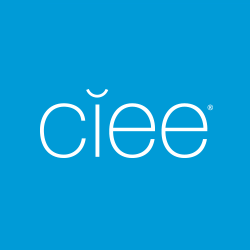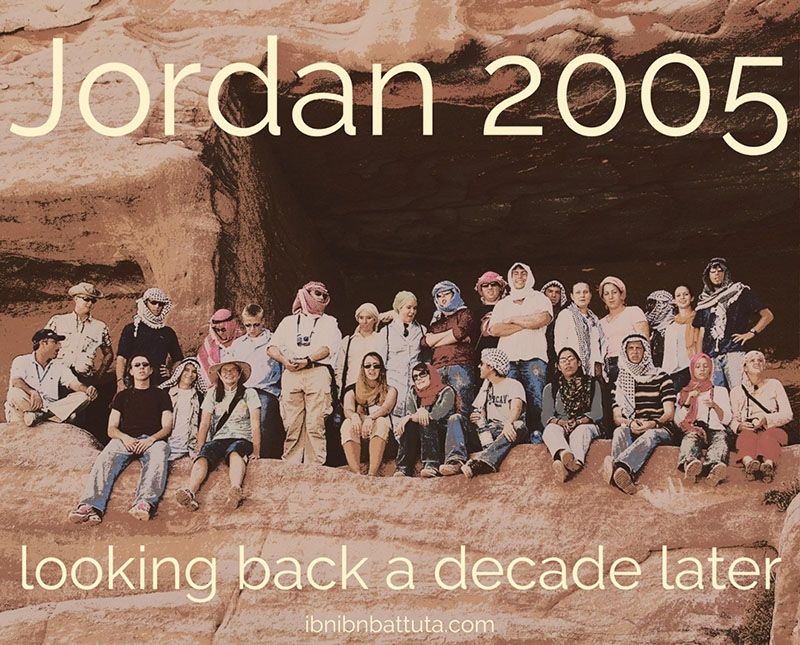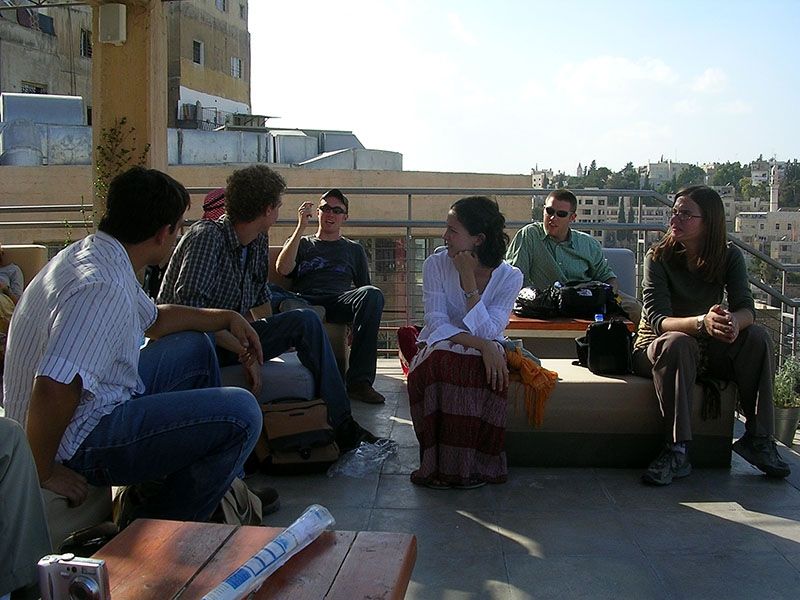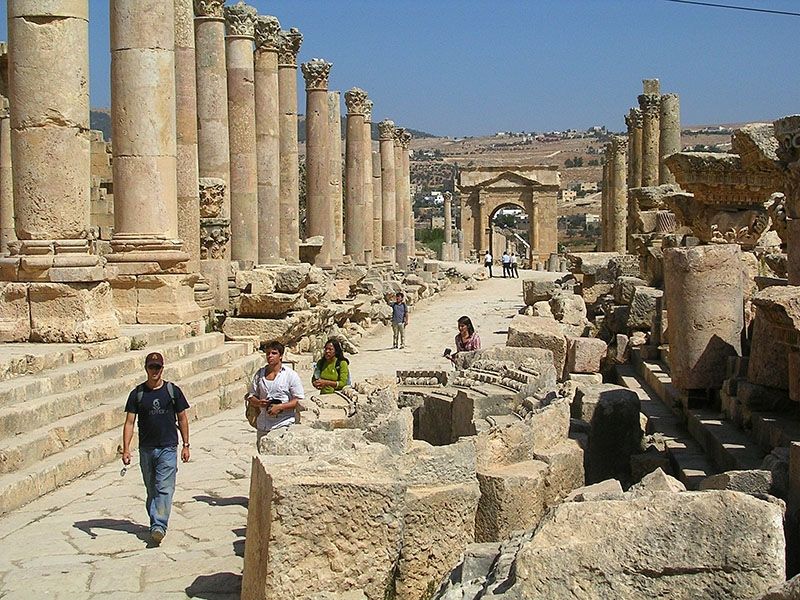Jordan 2005: Looking Back a Decade Later
October Alum of the Month: Andrew Farrand
CIEE Study Abroad in Amman, Jordan, Fall 2005

Andrew has continued to use the knowledge of Arabic language and culture he refined in Jordan in his professional career, working and living in recent years in Morocco and Algeria on a variety of international development programs. He currently lives in Algiers, Algeria, where he manages employment programs for university students and works as a consultant, translator, writer, and photographer. A passionate writer, Andrew has maintained his travel blog, Ibn Ibn Battuta (the name refers to the famous Moroccan traveler who traversed much of the known world in the 14th century) since 2004, including throughout his adventures in Jordan.
Curious to know how the lives of his fellow CIEE study abroad participants had been marked by their respective Jordan experiences, on the 10th anniversary of the group's arrival he contacted the other members with a survey, and published this review of their responses, reflections, and favorite memories. Here is a summary of what Andrew found, in his own words:
Credit for all photos: Andrew Farrand
"I cannot put it simply enough: Jordan shaped me into the man I am today. Those few months would later lead to me finding my religion, my profession, my wife, and personal happiness. A semester well spent."
Taylor, a Chicago-born journalist living in Amman, Jordan, wrote those words last week in response to a survey I sent to 26 fellow CIEE alumni.
Exactly ten years earlier, almost to the very day, Taylor, I, and the rest of that same group—then just skittish college students—had been sitting awkwardly in the continental breakfast bar of an Amman hotel, sizing each other up out the corners of our eyes during a crash course in Jordanian culture, all the while eagerly awaiting our host family assignments and the start of Arabic classes a few days later.
All of us came to Jordan from different backgrounds, shared several intense months together and, for the most part, went our separate ways. As the 10-year anniversary of our arrival in Jordan approached, I was curious to know where we all ended up. And while it can be fun to play "Where Are They Now?", another question intrigued me even more: How did those few months in the Middle East shape our lives?
To mark the anniversary, I invited my companions in Jordan to help me answer that question. I sent them a brief survey, and received responses from over half the group. This exercise—while far from scientific—revealed a range of experiences even more formative, varied, and fascinating than I had imagined.
PART I. BEFORE JORDAN
Our widely varying backgrounds—be it regional, political, religious, socioeconomic, racial, or otherwise—had been evident even back in 2005, despite everyone's best post-adolescent efforts to appear "normal". A decade later, in a written survey, the true range is more apparent. Our group hailed from across the US, from Appalachia to San Francisco, lower to middle to upper class, and included a mix of Christians, plus Jewish, Muslim, Baha'i, and atheist members. We were jockish and bookish, naive and worldly, gay and straight, ultra-liberal and ultra-conservative, to say nothing of the intangible cultural differences.
Why were we there? Everyone seemed to have come to Jordan searching for something they couldn't find back home. "I did not have many experiences beyond my own worldview and mindset," says Matt from Maine. "It was a point in my life where I was questioning my faith, whom I wanted to become and what I wanted to do with my life," says Jessica, who hailed from Philadelphia. "One thing was for sure—I was obsessed with learning languages and was on a mission to get exposed to as many different people and cultures as I could, as I knew it was the time of my life to have the opportunity to do that." Many talk of wanting to leave behind what they knew back home. "I'd always dreamed of escaping Kentucky," says Lindsay (forever known to our group simply as "Kentucky"), "and the scholarship I received to go to Jordan was the first real opportunity to do that."
PART II. DURING JORDAN
What was that experience like for all of us, uprooted from all that was familiar back in the United States, thrust into the homes of traditional Jordanian families, into Arabic classes, and into long field trips through the desert?
Unsurprisingly, experiences varied widely. Few rated their overall experience negatively, though equally few offered universal praise. When I asked what words my companions would use to describe their time in Jordan, "eye-opening", "enlightening", "life-changing", "fascinating", and "challenging" recurred frequently. (Tom wrote one word: "magical." Ten years later, it's often still hard to tell when he's joking and when he's not.)
A question about "particularly funny, influential, or memorable moments" brought forth a flood of rosy recollections. Floating in the Dead Sea, camping in the southern desert with the Bedouins, idyllic Friday lunches with the host family, reading and sipping tea at Books@Cafe, playing in the university soccer league, praying together with fellow Americans over Thanksgiving dinner, even "eating Kinder Bueno about every day and getting really fat."
When I asked what words my companions would use to describe their time in Jordan, "eye-opening", "enlightening", "life-changing", "fascinating", and "challenging" recurred frequently.
On the less rosy side, many mentioned the hotel bombings that marred that fall in Amman.
My companions' reflections on the many months we all spent in Jordan point to how each person's experience was not only unique, but also incredibly varied, with extreme highs and lows. One theme, however, was present throughout: We weren't in Kansas anymore. This place was different, and it would mark us all for years to come.
PART III. AFTER JORDAN
Since the end of our study abroad days, we have all spent years processing the experience. Many felt—and answered—the pull to return to the Arab world. Taylor returned to Jordan, David moved to Yemen, Austin studied in Syria, Mariam completed a Fulbright scholarship in Egypt and Lindsey did the same in Kuwait. Others chose life paths that did not lead them back to the Arab world, but describe their Jordan experience as formative all the same, albeit perhaps in less immediately visible ways. For Tom, it was "one of those visceral experiences that added texture to my education." Morgan, who today teaches in a bilingual school in San Francisco, found that Jordan gave him "a lot of insights on how the life of an exchange student is, which is valuable for an ESL teacher.”
Those of us who stayed in the region, or at least who keep coming back, have our own relationships with our time in Jordan. A journalist working in the region says of it, "You can't put a price on language, culture, experiences, and relationships made during that time. It made me a better journalist." Indeed, many centered their career on the skills they developed in Jordan, like Austin from Georgia, who says that his entire post-graduation career has required the use of Arabic language and cultural skills." Mariam credits her time in Jordan for pushing her to pursue a Ph.D. in anthropology on the region, and for making her strong enough to withstand the challenges of her Fulbright months in Egypt.
"an absolutely crucial juncture both in understanding more about the world at large and forming my identity as a global citizen"
Whether it was time with host families or with fellow American students, Arabic classes or desert sunsets, Ramadan fasting or chocolate bingeing, inner struggles with faith or public adoption of new identities, everyone who responded to the survey ascribes important life changes to their months in Jordan. For Jess, Jordan is "a huge part of who I am." For David, it was "my first time traveling alone... it forced me to be self-sufficient." For Austin, "an absolutely crucial juncture both in understanding more about the world at large and forming my identity as a global citizen." For another member of our group, it was a learning experience that taught "how different and similar other parts of the world are to each other, and also how crucial travel is for a life well lived."
A decade ago, we arrived naive, and left perhaps a little less so. We had come in search of someplace new and different, and we had found it.
--
This post was originally published on Andrew’s blog and was edited for the CIEE alumni website; read the full post here.
Related Posts
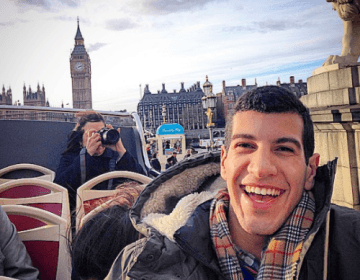
CIEE's July Alum of the Month Pursues a Career in Foreign Policy
The Alum of the Month for July is Leyth Swidan. As a Jordanian-American, Leyth spent his childhood summers traveling between Philadelphia and Jordan, familiarizing himself with Arab culture and learning... keep reading
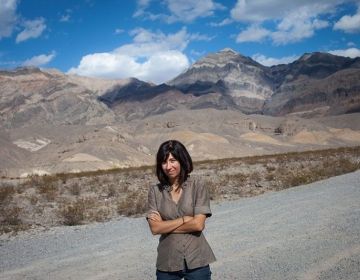
Interview: 4 Questions with CIEE study abroad alum Lindsey Leger
Lindsey Leger is a photojournalist and picture editor. She studied abroad in 2011 with the CIEE Language and Culture Program in Amman, Jordan. We spoke with her about her experience... keep reading
